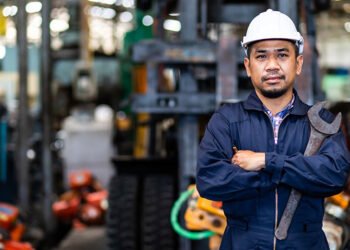“Stay ❄️ cool in summer, 🔥 warm in winter with Black Ice Heating & Cooling! Expert, professional HVAC services. Your home’s comfort solution! 🏠 🌡️
In the sweltering heat of summer or the biting cold of winter, a properly functioning air conditioning system is not just a luxury—it’s a necessity. Air conditioning units are complex machines that require regular maintenance to ensure their longevity, efficiency, and optimal performance. Neglecting this crucial aspect can lead to unexpected breakdowns, costly repairs, and decreased comfort. This article delves into the importance of air conditioning maintenance, explores the key components that require attention, and offers practical tips to keep your system in top shape. For expert maintenance services, Black Ice Heating & Cooling provides comprehensive care to ensure your system runs smoothly and efficiently, keeping your indoor environment comfortable year-round.
Understanding the Importance of Maintenance
Regular maintenance of air conditioning systems is vital for several reasons. Firstly, it significantly extends the lifespan of the unit. An air conditioner that is well-maintained can last up to 15 years, whereas one that is neglected may only survive for 8 to 10 years. Regular upkeep helps prevent minor issues from escalating into major problems that can lead to premature system failure.
Secondly, maintenance improves energy efficiency. Air conditioning units that are not maintained properly tend to consume more energy, leading to higher utility bills. A well-maintained system runs more efficiently, thereby reducing energy consumption and lowering costs. Additionally, a system operating at peak efficiency produces more consistent and comfortable temperatures, enhancing overall comfort.
Lastly, regular maintenance ensures better indoor air quality. Dust, mold, and other allergens can accumulate in a poorly maintained air conditioning system, which can adversely affect the air quality in your home. Routine maintenance helps to clean and replace filters, preventing the circulation of contaminants and ensuring that the air you breathe is clean and healthy.

Key Components of Air Conditioning Systems
To effectively maintain an air conditioning system, it’s essential to understand its key components and their roles. An air conditioning unit typically consists of the following parts:
- Filters: Air filters are crucial for trapping dust, dirt, and other particles before they enter the system. Over time, filters can become clogged, reducing airflow and efficiency. They should be inspected and replaced regularly, typically every 1 to 3 months, depending on usage and the type of filter.
- Coils: The evaporator and condenser coils are responsible for heat exchange in the air conditioning process. The evaporator coil absorbs heat from the air inside the home, while the condenser coil releases heat to the outside. Both coils can accumulate dirt, which impedes their efficiency. The evaporator coil should be cleaned annually, while the condenser coil may require cleaning every few years.
- Condensate Drain: The condensate drain helps remove excess moisture from the air. If this drain becomes clogged, it can cause water damage and increase humidity levels. Regularly checking and cleaning the condensate drain is essential to prevent blockages and ensure proper drainage.
- Thermostat: The thermostat controls the temperature of the indoor environment by regulating the air conditioning system. A malfunctioning thermostat can lead to inconsistent temperatures and increased energy consumption. Periodic calibration and testing of the thermostat ensure accurate temperature control.
- Refrigerant Levels: Refrigerant is the substance that absorbs and releases heat in the air conditioning process. Low refrigerant levels can indicate a leak and affect the system’s efficiency. Regular checks and recharging of refrigerant, if necessary, help maintain optimal performance.
- Electrical Components: Electrical connections, including wiring and capacitors, are vital for the operation of the air conditioning system. Loose or damaged electrical components can cause system failures or hazards. Regular inspections of electrical connections help prevent potential issues and ensure safe operation.
Practical Maintenance Tips
Maintaining an air conditioning system involves several practical steps that homeowners can take to ensure their system remains in excellent condition:
- Regular Filter Replacement: As mentioned earlier, air filters should be replaced or cleaned regularly. Check the manufacturer’s recommendations for your specific unit and adhere to them. Dirty filters can restrict airflow and cause the system to work harder, leading to higher energy bills and potential damage.
- Clean Coils and Fins: Gently clean the evaporator and condenser coils using a soft brush or vacuum. Ensure that the power to the unit is turned off before performing any cleaning. Remove any debris or dirt that may have accumulated on the coils and fins to maintain proper heat exchange.
- Check and Clean the Condensate Drain: Inspect the condensate drain for blockages and clean it regularly. A simple mixture of bleach and water can help keep the drain clear. Additionally, ensure that the drain line is properly sloped to facilitate effective drainage.
- Inspect and Test the Thermostat: Verify that the thermostat is functioning correctly by testing it at various temperature settings. If you notice any discrepancies, consider recalibrating the thermostat or replacing it if necessary.
- Monitor Refrigerant Levels: While refrigerant levels are typically checked during professional maintenance, it’s essential to be aware of any unusual noises or reduced cooling performance, which may indicate a refrigerant issue. Contact a professional if you suspect a leak or low refrigerant levels.
- Maintain Electrical Components: Regularly inspect the electrical connections, including wiring and capacitors. If you notice any signs of wear, corrosion, or damage, contact a qualified technician to address the issues promptly.
The Role of Professional Maintenance
While homeowners can perform basic maintenance tasks, professional maintenance is crucial for comprehensive care. A qualified HVAC technician can perform an in-depth inspection, identify potential issues, and provide necessary repairs or adjustments. It is generally recommended to schedule a professional maintenance check at least once a year, ideally before the peak heating or cooling seasons.
A professional technician will conduct a thorough assessment of the system, including checking refrigerant levels, cleaning coils, inspecting electrical components, and testing overall performance. They can also offer valuable advice on improving energy efficiency and address any concerns that may arise.
Conclusion
In conclusion, air conditioning maintenance is a fundamental aspect of ensuring the longevity, efficiency, and optimal performance of your cooling system. Regular upkeep not only extends the lifespan of the unit but also enhances energy efficiency and indoor air quality. By understanding the key components of your air conditioning system and following practical maintenance tips, you can prevent costly repairs and enjoy consistent comfort throughout the year. However, professional maintenance remains essential for comprehensive care and addressing complex issues. Prioritising regular maintenance will ultimately lead to a more reliable and cost-effective air conditioning system, providing you with peace of mind and a comfortable indoor environment.












